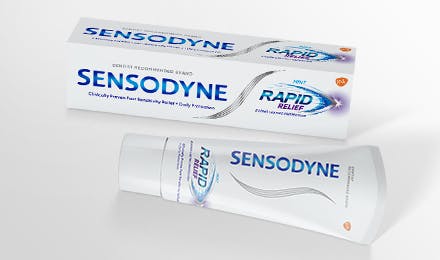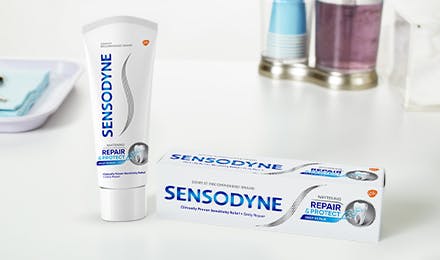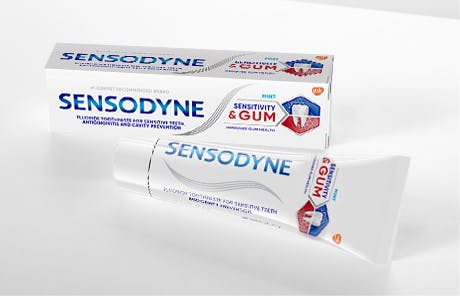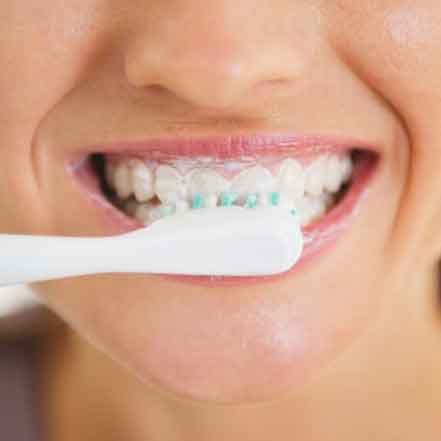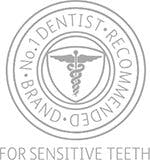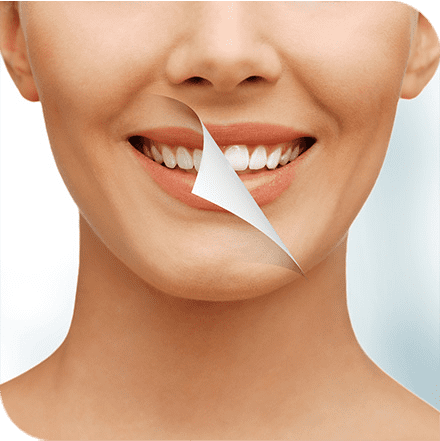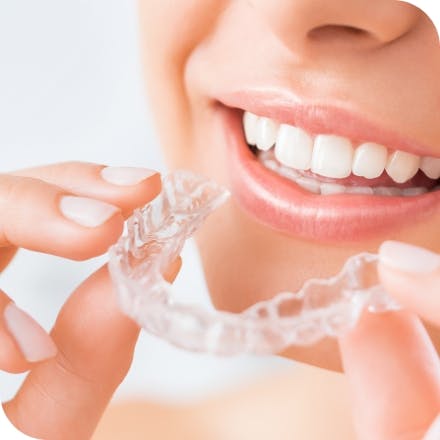What You Should Know About Whitening Sensitive Teeth

A bright, gleaming white smile can boost confidence, but some teeth whitening techniques can cause tooth sensitivity.i Before beginning a teeth whitening regimen, consult with your dentist to learn how to whiten your sensitive teeth safely and the best whitening option for you.
What to Know About Teeth Whitening
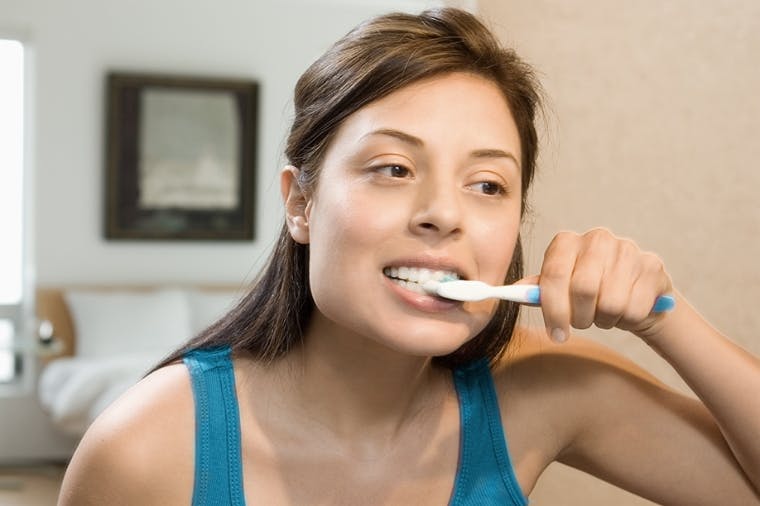
Healthy Teeth and Whitening
Across the range of products and methods available – including whitening gels, trays and strips – and depending on the type and extent of the stains you would like to remove, results can vary.i If you have sensitive teeth, here’s what to know about teeth whitening:
• Bleaches (peroxides) used in bleaching trays, whitening strips and gels can trigger sensitivity and may irritate gums.i
• Sensitive or painful teeth can be the result of cavities or other dental issues. Visit your dentist to get a dental assessment and check whether you have sensitive teeth or a cavity before you consider whitening your teeth.ii
Can I Whiten Sensitive Teeth?
You can probably whiten your sensitive teeth as long as you choose your teeth whitening method carefully (in consultation with your dentist) and monitor yourself for any additional symptoms of sensitive teeth.iii Not all whitening techniques may be suitable for sensitive teeth. Products that contain stronger solutions of bleach or remain on your teeth for longer may produce sensitivity.i
A whitening toothpaste such as Sensodyne Extra Whitening, which helps to gently whiten teeth over time while protecting against sensitivity, or Sensodyne Clinical White, which provides 24/7 sensitivity protection* combined with advanced whitening technology, could be a great option.
What Is the Best Tooth Color for Me?
The degree of whiteness you can expect from different teeth whitening methods will vary. A lot depends on the type and extent of the staining you are trying to remove.i Generally, it’s best to focus on restoring the natural color of your teeth to achieve your own ‘true white.’ Talk to your dentist about the best product for you, even if you plan to use an at-home whitening remedy.
Is Toothpaste or Bleaching Best for Whitening Teeth?
When considering teeth whitening, you may be wondering whether to choose toothpaste or a bleaching method. Both have their pros and cons.
Bleaching – using whitening trays, gels or strips – involves using a bleaching agent (usually peroxide) to create a chemical reaction that changes the color of your teeth. This can result in a brighter white but can also cause tooth sensitivity and irritate your gums.i
Rather than trying to change the color of your teeth, whitening toothpastes contain abrasives (among other ingredients), which lighten teeth by helping to lift away surface stains.v
Does Sensodyne Whiten Teeth?
If you have sensitive teeth and prefer to steer clear of bleach, a whitening toothpaste such as Sensodyne Extra Whitening could be your answer. Sensodyne Extra Whitening is specially formulated to whiten sensitive teeth. Brushing with it twice daily will gently lift surface stains to help whiten your teeth and provide sensitivity protection.
How Does Sensodyne Toothpaste Whiten Teeth?
Sensodyne Extra Whitening’s low-abrasive formula contains ingredients carefully chosen to provide effective whitening for people with sensitive teeth. It contains potassium nitrate, to decrease sensitivity by calming the nerves deep inside the teeth, and fluoride to help strengthen tooth enamel.v
For another gentle whitening option specially designed for sensitive teeth, try Sensodyne Clinical White or Sensodyne Pronamel Gentle Whitening.
Teeth Bleaching Sensitivity Tips
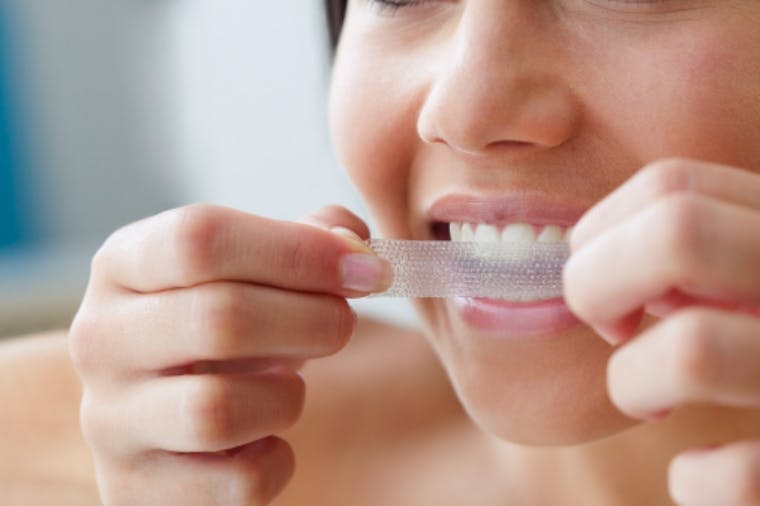
• Brush and floss daily: This will help remove stain-producing particles between the teeth and prevent plaque formation.vi
• Avoid tobacco: It goes without saying that if you are a smoker, quit now! Tobacco can stain your tooth enamel.vi
• Talk to your dentist: Ask them for recommendations on how to deal with teeth bleaching pain.
What to Know About Teeth Whitening: Next Steps
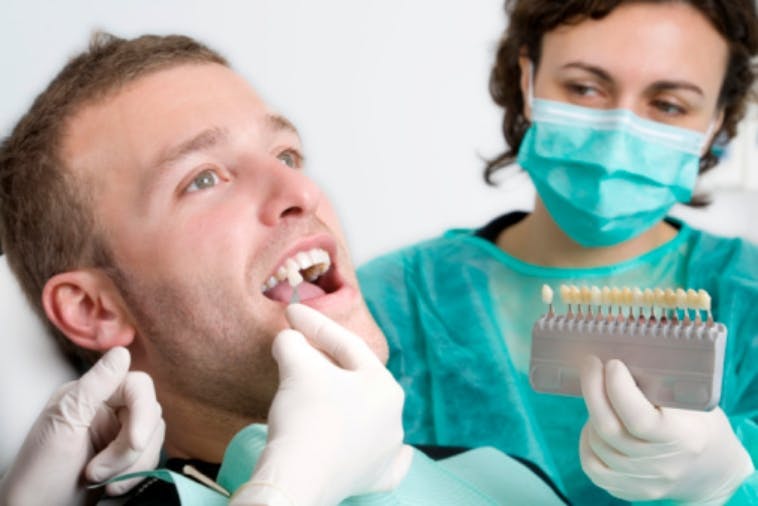
Even with sensitive teeth, a whiter smile can be yours. Choose a whitening method that will not cause tooth sensitivity, like Sensodyne toothpastes. Find out where to buy Sensodyne products.
Whitening Sensitive Teeth with Sensodyne
If you have sensitive teeth and are looking for a toothpaste to help give you a whiter smile, consider Sensodyne Extra Whitening. Brushing twice a day, every day, will gently lift stains to help whiten your teeth and provide ongoing relief and lasting protection from sensitivity pain.
*with twice daily brushing
SOURCES
By clicking any of the links below you will be taken to an external website that is independently operated and not managed by GSK. GSK assumes no responsibility for the content on the website. If you do not wish to leave this website, do not click on the links below.
- Whitening (Introduction). American Dental Association. https://www.ada.org/en/member-center/oral-health-topics/whitening. Accessed 03/04/20.
- Sensitive Teeth. Mouth Healthy. https://www.mouthhealthy.org/en/az-topics/s/sensitive-teeth. Accessed 03/04/20.
- ADA Patient Smart| Tooth Whitening – MouthHealthy. 2013. https://www.mouthhealthy.org/~/media/ADA/Publications/Files/ADA_PatientSmart_Tooth_Whitening.pdf?la=en
- Whitening (Treatment considerations). American Dental Association. https://www.ada.org/en/member-center/oral-health-topics/whitening. Accessed 21/02/21.
- Toothpastes. American Dental Association. https://www.ada.org/en/member-center/oral-health-topics/toothpastes. Accessed 03/04/20.
- Why do teeth darken? Cleveland Clinic. https://my.clevelandclinic.org/health/diseases/10958-tooth-discoloration. Accessed 03/04/20.


